| Watching Game of Thrones is like attending a college ice cream social or large corporate meet-and-greet. You begin with enthusiasm, shaking hands, asking questions, and committing names to memory. Have I met you before? Where did I see you last? Nine conversations later, the names start to blur in your mind (was it Trista? Tristan?). By the hour-mark, you're repeating the same questions twice, reintroducing yourself to the people you greeted first, and intentionally avoiding the overly gregarious letterman jacket guy whom you pretended to remember from a summer BBQ. You grab a last scoop of mint chip, circle back to Trista(n), bid goodnight, and leave. By the end of Game of Throne's third season—an often thrilling, sometimes bloated television extravaganza—I'd chosen nine characters to remember and approximately 35 others to disregard. Remarkably, this viewing strategy works, and it ends up being both Thrones' biggest strength and greatest weakness. Note: this review contains general commentary on characters arcs, though there are no major spoilers. I attempt to write reviews I wouldn't mind reading if I hadn't seen the show, but for the extremely spoiler-sensitive, read on at your own risk. Based on the expansive, winding, intricate series of books by George R. R. Martin, Thrones on HBO is something of a medieval miracle. In a standard 55-minute episode, Thrones whisks viewers from squabbling sentries to tense family dinners to ghostly woodland predators to armies on the march. What's more, nearly every scene features a character with motivation, back-history, and moral perspective equal to that of today's greatest television protagonists. There's Jaime Lannister, the proud swordsmen whose outwardly despicable acts mask a fierce inner-humanity. There's Arya Stark, the 10-year-old tomboy forced to leave her family after witnessing impossible cruelty. There's Daenerys Targaryen, the sex-slave-turned-queen, fearless military commander. It hardly seems possible that these and dozens of others could develop this much, this deeply, through three short seasons, but such is the wizardry of Thrones. Still, Thrones often feels fragmented. Throughout the series, and particularly in season 3, the central characters rarely cross paths, let alone swords. Sure, they cover consistent themes in conversation—the Iron Throne, the war, the North, the White Walkers—but most remain within their own camp, troop, or castle walls for several episodes at a time. It might seem odd to complain about this after years of too-perfect-to-be-happenstance television. (You're telling me every key character planned a trip to Vegas the same weekend?! Impossible!). But Thrones starts to lose some of its magical cohesion as a result. At times, season 1 was notably better, mixing private plotting with public confrontations, as the primary families freely dined, debated, and beheaded together. This (more) consistent interaction gave the show a reassuring flow, paying off even the most obscure conversations with critical consequences just an episode later. In contrast, season 3 doubles the story lines and halves the number of path-crossings. While I tend to trust both Martin and HBO to bring it all back over the next couple seasons, I sometimes worry that too much narrative bark has splintered from the tree. Even so, Thrones creates such a novel experience that you'll likely forgive the bloated cast of characters. Flying from bustling town to mountain top to raucous military encampment has a unique charm that transcends Thrones' intricate plotting and deep history. Like your favorite song or poem, the series creates a sense of wonder just by the way it feels, even if you don't understand everything about what it says. I wouldn't always want to watch television this way. But for Game of Thrones? Absolutely.
| Tyrion Lannister Peter Dinklage Likes: wine, virtue Dislikes: Joffrey, forced marriages How to remember: shortest, funniest character on the show Season 3 Grade: A While nothing can match Tyrion's commanding, calculating second season, Dinklage continues to charm, even as his character wallows in wine and misery. Tywin Lannister Charles Dance Likes: belittling others, matchmaking Dislikes: talking to people, smiling How to remember: the old guy who's always writing letters Season 3 Grade: A+ The standout performance for season 3, Dance plays smartest Lannister in the room, as Tywin verbally dismantles his already-brilliant family. A delightfully smug villain. Daenerys Targaryen Emilia Clarke Likes: liberating slaves, making loud declarations Dislikes: interacting with any of the other key characters on the show How to remember: that blonde woman with the dragons Season 3 Grade: B Her journey through the first two seasons was arguably the series' most fascinating (sold for sex, gained power, became queen). In season 3, Emilia Clarke's stable, if predictable, performance slows the character's momentum, though not fatally. Melisandre Carice van Houten Likes: making creepy spiritual predictions, birthing shadow babies Dislikes: being normal, thinking logically How to remember: that creepy woman who sounds like Norah Jones Season 3 Grade: B+ Although Carice van Houten has less screen time to impress, it's hard to think of a better fit for the role: simultaneously sultry and unsettling. Catelyn Stark Michelle Fairley Likes: freeing prisoners, giving advice Dislikes: being ignored How to remember: the woman who appears to have just arrived on set from a funeral service Season 3 Grade: B- A late season revelation partially saves an otherwise dull performance from Michelle Fairley, who suffers from the same ills as her son Robb. | Jaime Lannister Nikolaj Coster-Waldua Likes: swordplay, incest Dislikes: dumb people, brunettes How to remember: guy that looks like Sawyer from Lost Season 3 Grade: A- Once only a pompous bully, Coster-Waldua's Jaime almost wins us back with a much more vulnerable, tortured performance. A striking reversal. Cersei Baratheon Lena Headey Likes: moping, looking scandalized Dislikes: everything else How to remember: that character who seems to have wandered over from Desperate Housewives Season 3 Grade: B+ Cersei's stiff demeanor and constant sarcasm barely conceal an entrapped, depressed queen. I'd grade her higher, but Headey's third season performance lacked the emotional range of earlier seasons. Jon Snow Kit Harington Likes: making faux-profound statements, trying to grow a beard Dislikes: ever changing his expression, acting How to remember: the guy who, appropriately, spends all of his time in, around, or near snow Season 3 Grade: D+ The Ron Weasley (Harry Potter) of the series, Jon Snow seems like a reasonably intriguing character done in by an emotionless, underwhelming performance. Kit Harington's vaguely open-mouthed countenance might be intentional, but it just doesn't work. An oddly boring character. Joffrey Baratheon Jack Gleeson Likes: being pouty and psychotic Dislikes: Tywin, smart decisions How to remember: the boy who looks like Draco Malfoy from Harry Potter Season 3 Grade: B A tough performance to grade. He's by far the most hated character, something Gleeson deserves credit for perpetuating. Then again, he's so thoroughly evil, he lacks complexity. He gets a B. |
|
8 Comments
One of my favorite series has always been Game of Thrones, and have been a fan of the series for quite some time now. and thanks to <a href="https://www.makeoverarena.com/netnaija/">Netnaija</a> and <a href="https://www.makeoverarena.com/toxicwap-free-tv-series-movies-music-ebook-mobile-games-app/">Toxicwap</a>, I have been able to download the series. thanks for the details concerning the series, I really loved it.
Reply
Itzik Vinsky
8/1/2022 04:06:16 am
Business inquiry for the admin;
Reply
Devvvv
2/3/2023 06:00:55 am
One of my favorite series has always been Game of Thrones, and have been a fan of the series for quite some time now. and thanks to. https://techbenzy.com/
Reply
Manuel Franco
10/11/2023 11:14:34 pm
I just want to say Thank You to everyone who supported me through the years. My name is Manuel Franco, New Berlin, Wisconsin. My story of how I won the Powerball lottery of $768.4M is a bit of a tale. I have been playing Powerball tickets for 6 years now since I turned 18. I bought my first ticket on my 18 birthday. I was feeling very lucky that day because I had contacted Dr. Odunga Michael to help me with the winning Powerball numbers. I really had that great great feeling that I looked at the camera wanting to wink at it. I only did a tiny part of it and trusted him. He gave me the numbers after I played a couple other tickets along with it for $10. I checked my ticket after the winnings came online and saw the numbers were correct including the Power play. I screamed for about 10 minutes because it felt like a dream. I had won $768.4M. You can check my winning testimony with the lottery officials just with my name search. Thank you Dr Odunga. Well, his email is [email protected] and you can also call or Whats-app him at +2348167159012 so you guys can contact him
Reply
Hailey Garcia
6/21/2024 05:46:56 am
My name is Hailey Garcia and I am from New Jersey. My herpes virus turned to war after 2 years of living with it. I have tried different medical procedures to cure my herpes but to no avail. Most people think herpes is only a minor skin irritation of which herpes has long term effects on health and passes through the bloodstream and can be easily contracted through sexual intercourse. I knew I had herpes from the first day I started feeling itchy in my pubic area and the pain was very unbearable. I couldn't stand it anymore. After 2 years of trying other means to get rid of it, I had to contact Doctor Odunga to help me with a permanent cure. I saw his email and whats-app number from a testimony I read online from a lady who was also helped by him in curing infertility problems, I had faith and contacted him. He assured me of his work and I ordered his herbal medicine. Within 5 days, I didn't feel any pain anymore and within 2 weeks, my skin was all cleared and smooth. I am very grateful to you sir and I write this testimony as others have done to bring those having faith to you sir. If you have herpes or other similar disease and you want it cured, kindly contact Doctor Odunga, Whats-App (wa.me/+2348167159012) OR Email [email protected]
Reply
Leave a Reply. |
TheCroakingFrog
|

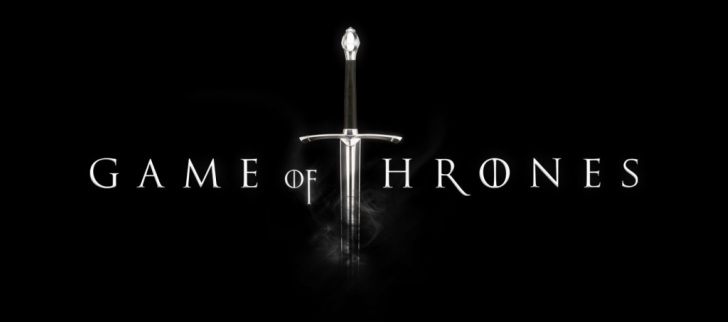
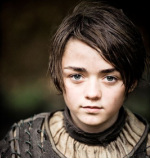
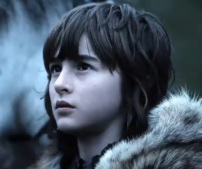
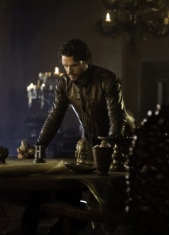
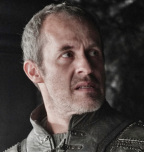
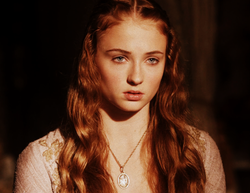

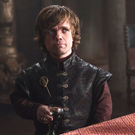
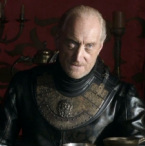

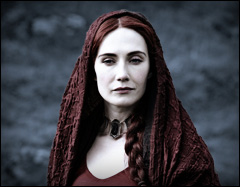
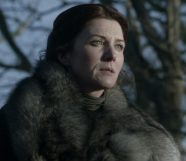
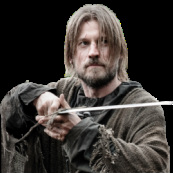
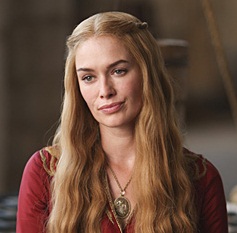

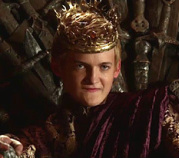
 RSS Feed
RSS Feed
